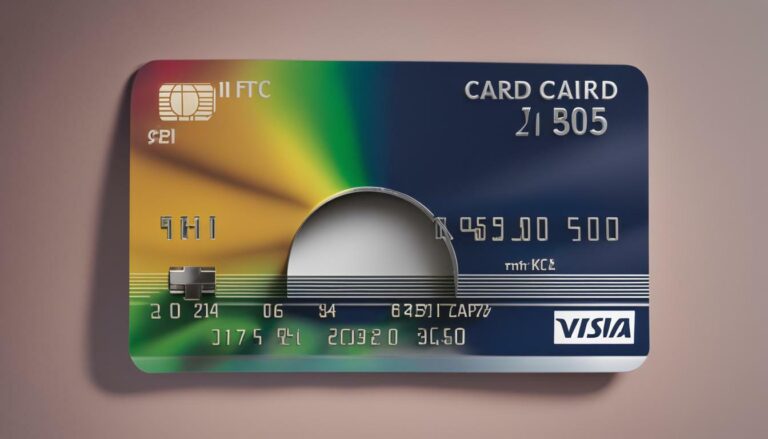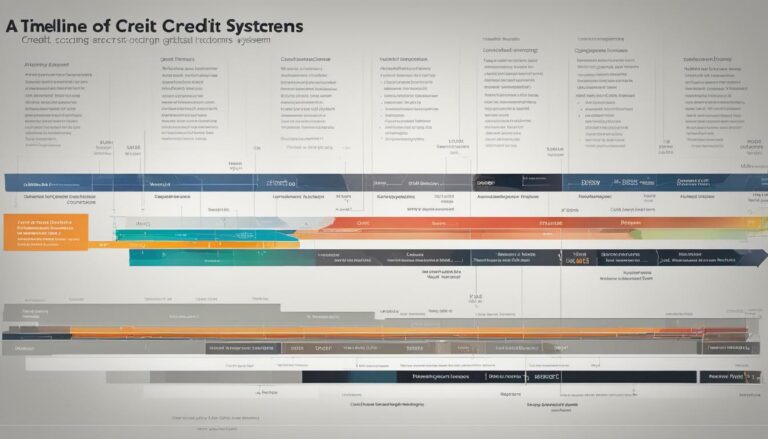Understanding the Role of Credit Scores in Financial Education Curriculums
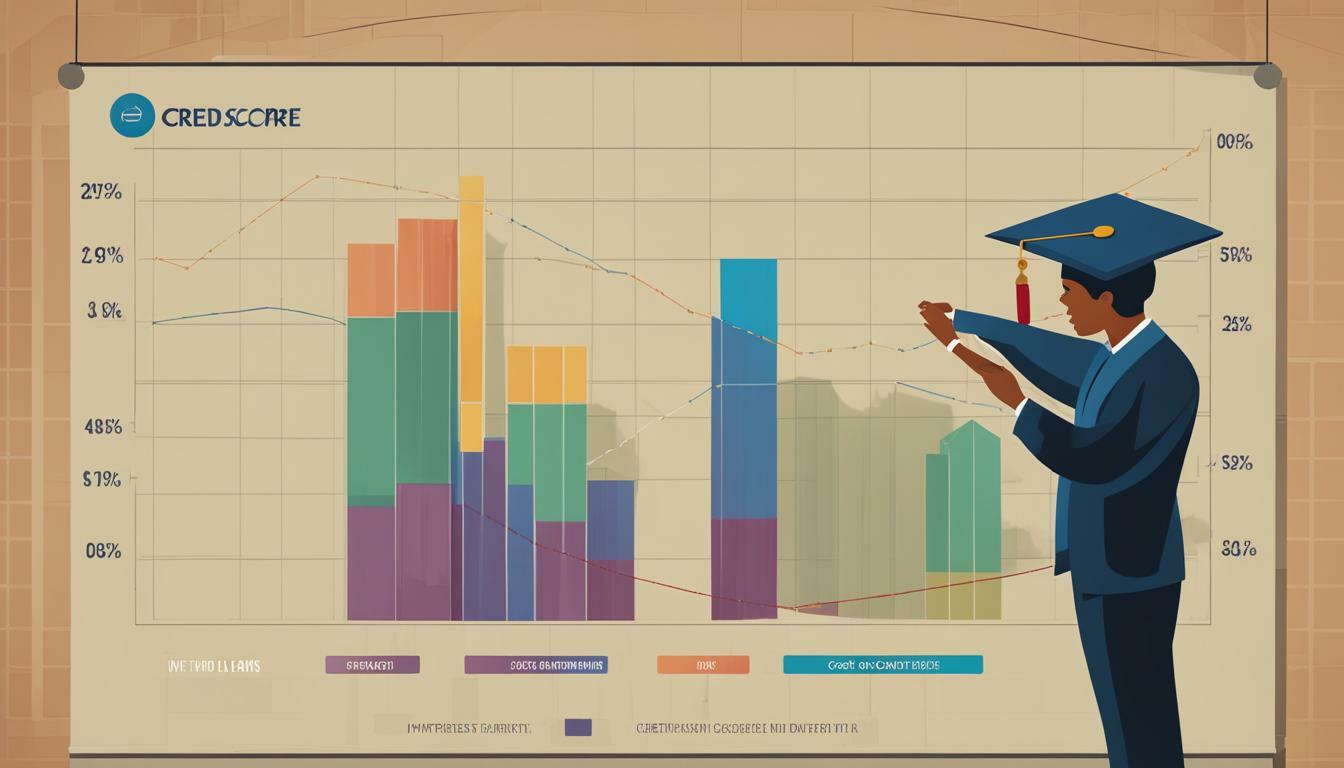
Credit scores play a vital role in financial education curriculums, influencing various aspects of personal finance. It is essential for individuals to understand how credit scores can impact their financial future and make informed decisions based on this knowledge. Whether you’re buying a house, applying for a loan, or even renting an apartment, your credit score will be a significant factor determining your eligibility and interest rates.
Financial education curriculums aim to equip individuals with the necessary knowledge to navigate the complex world of personal finance. One crucial aspect of this education is the understanding of credit scores and their importance. By comprehending how credit scores are calculated and what factors contribute to a healthy credit score, individuals can make well-informed choices to improve their financial well-being.
- Credit scores have a significant impact on financial decisions, such as getting loans or renting apartments.
- Understanding how credit scores are calculated and maintained is crucial for financial success.
- Financial literacy programs have shown positive effects on credit scores.
- Tools like Experian Boost can help individuals improve their credit scores.
- Personal finance courses in high school curriculums aim to improve financial behavior.
The Calculation and Maintenance of Credit Scores
Understanding how credit scores are calculated and knowing how to maintain them is crucial for financial success. Your credit score is a numerical representation of your creditworthiness, which lenders use to assess your ability to borrow money responsibly. It is based on several key factors, including your payment history, credit utilization, length of credit history, types of credit used, and recent credit inquiries.
Let’s break down each of these factors to gain a deeper understanding:
- Payment History: This is the most significant factor in calculating your credit score. Making timely payments on your loans and credit cards demonstrates responsibility and reliability to lenders.
- Credit Utilization: This refers to the amount of available credit you are using. It is advisable to keep your credit utilization ratio below 30% to maintain a healthy score.
- Length of Credit History: The longer you have established credit, the better it reflects your creditworthiness. It is beneficial to maintain longstanding accounts, even if they have low balances.
- Types of Credit Used: A diverse credit mix, including credit cards, loans, and mortgages, can positively impact your credit score. It demonstrates your ability to manage different types of credit responsibly.
- Recent Credit Inquiries: Every time you apply for new credit, a hard inquiry is generated, which can temporarily lower your credit score. It is important to be mindful of unnecessary credit inquiries.
Maintaining a healthy credit score requires consistent effort and responsible financial habits. Paying your bills on time, reducing outstanding debt, and avoiding excessive credit applications are essential steps towards maintaining a good credit score.
🚨 TUIC Errors + Low Credit Score?
CreditScoreIQ helps you build credit faster by reporting utility bills to all 3 bureaus—while you dispute errors.
Start Building Credit Today →| Credit Score Ranges | Rating |
|---|---|
| 800-850 | Exceptional |
| 740-799 | Very Good |
| 670-739 | Good |
| 580-669 | Fair |
| 300-579 | Poor |
Remember, your credit score is a reflection of your financial responsibility and can have a significant impact on your ability to obtain favorable interest rates, secure loans, or even rent an apartment. Regularly monitoring your credit report for accuracy and taking proactive steps to improve your credit score can pave the way for a brighter financial future.
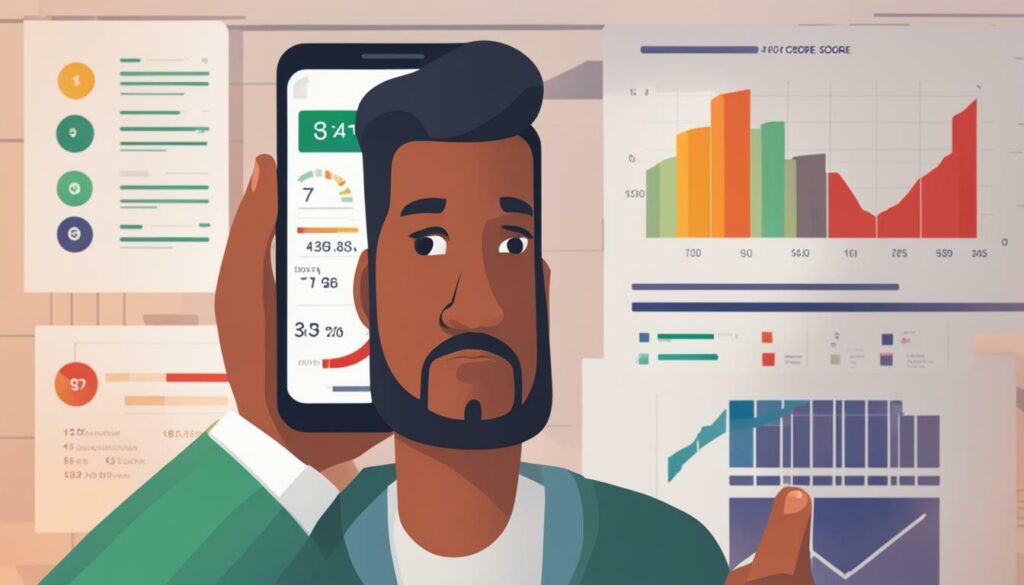
Participating in financial literacy programs can significantly improve credit scores and enhance overall financial well-being. These programs aim to educate individuals on key aspects of personal finance, including budgeting, saving, and credit management. By providing participants with the knowledge and skills necessary to make informed financial decisions, financial literacy programs empower individuals to take control of their financial lives and improve their creditworthiness.
According to a study conducted by the National Bureau of Economic Research, individuals who participated in financial literacy programs experienced an average increase of 30 points in their credit scores over a two-year period. This improvement in credit scores can have a positive ripple effect on various aspects of individuals’ financial lives, from qualifying for better loan terms to reducing the cost of borrowing.
One key factor contributing to the positive impact of financial literacy programs on credit scores is the emphasis on responsible credit management. Participants learn the importance of paying bills on time, maintaining low credit utilization ratios, and avoiding excessive debt. They also gain an understanding of how credit scores are calculated and the factors that can influence creditworthiness.
The Role of Financial Education in Empowering Individuals
In addition to improving credit scores, financial literacy programs also empower individuals to make informed financial decisions and develop healthier financial habits. Participants gain the knowledge to budget effectively, save for emergencies, and plan for major life events. By acquiring these skills, individuals are better equipped to navigate the complex world of personal finance and avoid common pitfalls that can lead to financial stress and hardship.
| Benefits of Financial Literacy Programs | Impact on Credit Scores |
|---|---|
| Improved credit management skills | Increase in credit scores |
| Enhanced financial decision-making abilities | Better loan terms |
| Reduced financial stress | Lower borrowing costs |
Financial literacy programs play a vital role in empowering individuals to take control of their financial lives and improve their creditworthiness. By providing participants with the knowledge and skills necessary to make informed financial decisions, these programs contribute to the overall financial well-being of individuals and communities.

In summary, financial literacy programs have a significant impact on credit scores. They empower individuals to improve their creditworthiness by teaching responsible credit management practices and providing participants with the knowledge and skills to make informed financial decisions. By participating in these programs, individuals can enhance their overall financial well-being and pave the way for a more secure financial future.
Tools and Resources for Credit Score Improvement
Several resources and services, such as credit counseling organizations and credit repair companies, can assist in improving credit scores. These organizations provide valuable guidance and support to individuals looking to enhance their financial standing.
Credit counseling organizations offer professional advice on managing finances, reducing debt, and improving credit. They provide personalized plans and strategies tailored to individual needs. Through financial education programs and counseling sessions, credit counseling organizations empower individuals to make informed financial decisions and develop healthy financial habits. They aim to improve credit scores by helping individuals understand their credit reports, dispute any errors, and create effective repayment plans.
On the other hand, credit repair companies promise to improve credit scores by challenging negative items on credit reports. However, it is important to approach credit repair companies with caution, as some may engage in unethical practices or charge exorbitant fees. Before engaging the services of a credit repair company, it is recommended to research their reputation, verify their credentials, and carefully review any contracts or agreements.
“Improving credit scores takes time, effort, and the right knowledge. Credit counseling organizations and credit repair companies can provide the necessary tools and guidance to individuals on this journey.”
In addition to credit counseling organizations and credit repair companies, tools like Experian Boost can aid in credit score improvement. Experian Boost allows individuals to include positive payment history for utility bills and phone bills in their credit reports. By adding these positive payment records, individuals may see an increase in their credit scores. This tool is particularly beneficial for those with limited credit history or thin credit files.
Table: Differences between Credit Counseling Organizations and Credit Repair Companies
| Aspect | Credit Counseling Organizations | Credit Repair Companies |
|---|---|---|
| Primary Focus | Financial education, debt management, and improving credit through responsible financial behavior. | Challenging negative items on credit reports to improve credit scores. |
| Cost | Most credit counseling organizations offer free or low-cost services. | Credit repair companies often charge upfront fees or monthly fees. |
| Approach | Provide guidance, support, and personalized plans to help individuals manage their finances and improve credit scores. | Dispute negative items on credit reports, negotiate with creditors, and monitor credit reports for changes. |
By utilizing the resources and tools available, individuals can take active steps towards credit score improvement. However, it is crucial to remember that improving credit scores takes time, effort, and the right knowledge. Credit counseling organizations and credit repair companies can provide the necessary tools and guidance to individuals on this journey.

Incorporating Financial Education into High School Curriculums
Personal finance courses in high school curriculums aim to foster responsible financial behavior and provide essential skills for financial success. These courses equip students with the knowledge and tools necessary to make informed decisions about their personal finances, preparing them for a lifetime of financial independence. By integrating personal finance into the curriculum, high schools are investing in the financial well-being of their students and preparing them for the challenges and responsibilities they will face as adults.
These courses cover a range of topics, including budgeting, saving, investing, banking, credit, and consumer awareness. Students learn about the importance of creating a budget, tracking expenses, and setting financial goals. They also gain an understanding of the different types of savings and investment options available to them and how to make smart financial decisions.
Financial literacy courses also teach students about the various banking services and products they may encounter, such as checking and savings accounts, loans, and credit cards. Students learn how to manage their money effectively, maintain good credit, and avoid falling into debt. They also learn about consumer rights and responsibilities, helping them become savvy consumers who can protect themselves from scams and make informed purchasing decisions.
| Benefits of Personal Finance Courses in High School Curriculums | Skills Taught in Personal Finance Courses |
|---|---|
|
|
By incorporating personal finance courses into high school curriculums, educational institutions are equipping students with the skills and knowledge necessary to navigate the complex world of personal finance. These courses not only help students develop good financial habits but also shape their attitudes towards money. By empowering young individuals to make informed financial decisions, we can set them on a path towards financial success and security.

“Personal finance education is not just about the money. It’s about setting goals for your life and taking control of your financial future.”
Establishing and Monitoring Good Credit
Establishing good credit requires taking proactive steps, such as opening accounts, paying bills on time, and monitoring credit reports. By following these practices, you can build a positive credit history and increase your creditworthiness. This section will delve into the necessary actions for establishing good credit and highlight the importance of regularly monitoring your credit reports for accuracy.
One of the first steps in establishing good credit is opening a checking and savings account. These accounts demonstrate your ability to manage money responsibly and provide a foundation for additional credit-building opportunities. It is crucial to pay your bills on time to prove your reliability as a borrower and avoid negative marks on your credit report. Late payments can significantly impact your credit score and make it difficult to access credit in the future.
To ensure the accuracy of your credit reports, it is vital to check them annually. A credit report contains personal information, credit history, and inquiries made by companies. By reviewing your credit report regularly, you can identify any errors or discrepancies that may affect your creditworthiness. If you notice any inaccuracies, it is important to dispute them promptly to maintain the integrity of your credit profile.
| Credit Reporting Agency | Website |
|---|---|
| Equifax | www.equifax.com |
| Experian | www.experian.com |
| TransUnion | www.transunion.com |
By accessing your credit reports, you gain insight into your financial history and can take the necessary steps to improve and maintain good credit. Remember, establishing good credit takes time and requires consistent efforts to pay bills on time, maintain low credit utilization, and avoid excessive debt. By practicing responsible financial habits and monitoring your credit reports, you can secure a bright financial future and make informed decisions when it comes to borrowing and managing your finances.
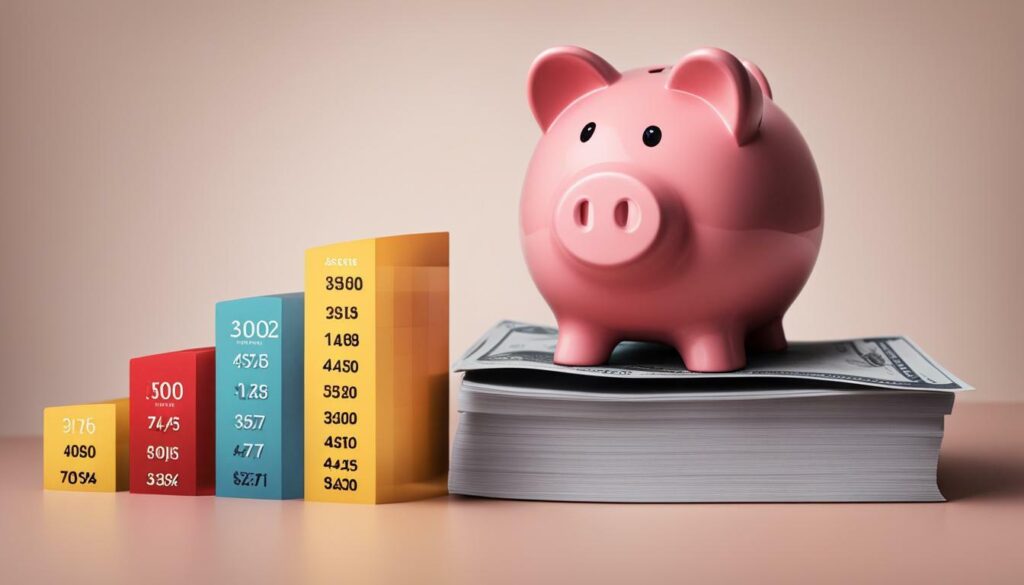
- Establishing good credit involves opening accounts, paying bills on time, and monitoring credit reports.
- Opening a checking and savings account demonstrates financial responsibility.
- Paying bills on time is crucial for maintaining a positive credit history.
- Regularly checking credit reports helps identify errors and maintain accuracy.
- Credit reporting agencies like Equifax, Experian, and TransUnion provide free credit reports.
Pros and Cons of Credit Cards
Credit cards offer advantages such as emergency use and purchase protection, but it is essential to be aware of their potential pitfalls. Let’s explore the benefits and drawbacks of using credit cards as a borrowing tool.
Advantages of Credit Cards:
- Emergency Use: Credit cards can provide a financial safety net in unexpected situations, offering a convenient way to cover urgent expenses.
- Purchase Protection: Many credit cards offer extended warranties, purchase guarantees, and fraud protection, providing added security when making purchases.
- Establishing Good Credit: Using credit cards responsibly and making timely payments can help individuals build a positive credit history, increasing their creditworthiness over time.

Disadvantages of Credit Cards:
- Overuse: Easy access to credit may tempt individuals to overspend and accumulate debt beyond their means, leading to financial stress.
- High Interest Rates or Annual Fees: Some credit cards may come with high interest rates or annual fees, which can add significant costs to balances if not managed carefully.
- Risk of Poor Credit: Irresponsible credit card usage, such as missing payments or maxing out credit limits, can damage credit scores and limit future borrowing opportunities.
“It’s important to note that credit cards are not free money; they are a form of borrowing that should be used wisely.”
When considering credit card offers, it is crucial to review the Schumer box, which outlines fees, interest rates, APR (Annual Percentage Rate), and grace periods. Comparing different credit card options can help individuals find the best fit for their financial needs and goals.
| Advantages | Disadvantages |
|---|---|
| Emergency Use | Overuse |
| Purchase Protection | High Interest Rates or Annual Fees |
| Establishing Good Credit | Risk of Poor Credit |
Conclusion
Understanding and effectively managing credit scores are crucial for financial success, making them an essential aspect of financial education curriculums. Credit scores play a significant role in shaping an individual’s financial destiny, impacting various financial undertakings such as buying a house or applying for a credit card. It is essential to comprehend how credit scores are calculated and what steps can be taken to maintain a healthy credit score.
Financial literacy programs have shown positive impacts on credit scores, highlighting the correlation between financial education and improved creditworthiness. Individuals seeking to improve their credit scores can utilize various tools and resources, such as credit counseling organizations and credit repair companies. Tools like Experian Boost can also be utilized to enhance credit scores.
Establishing good credit involves opening checking and savings accounts, paying bills on time, paying down outstanding balances, and regularly checking credit reports for accuracy. Credit reports provide crucial information such as personal data, credit history, and inquiries made by companies. Checking credit reports annually is advisable to ensure accuracy and identify any potential errors.
While credit cards can be a useful borrowing tool, responsible usage is vital. Advantages of credit cards include emergency use, purchase protection, and the ability to establish good credit if used wisely. However, there are also disadvantages such as overuse, high interest rates or annual fees, and the risk of poor credit. It is important to review the Schumer box, which outlines fees, interest rates, APR, and grace periods, when considering credit card offers.
FAQ
Q: What is a credit score?
A: A credit score is a three-digit number that represents an individual’s creditworthiness based on their credit history. It is used by lenders to assess the risk of lending money to someone.
Q: How are credit scores calculated?
A: Credit scores are calculated using various factors, including payment history, amounts owed, length of credit history, types of credit used, and new credit inquiries. Each factor has a different level of importance in determining the credit score.
Q: How can I maintain a healthy credit score?
A: To maintain a healthy credit score, it is important to pay bills on time, keep credit card balances low, avoid opening multiple new credit accounts at once, and maintain a good mix of credit types.
Q: Can financial literacy programs improve credit scores?
A: Yes, studies have shown that financial literacy programs can have a positive impact on credit scores. By increasing knowledge and awareness of financial concepts, individuals are better equipped to make informed decisions and manage their credit effectively.
Q: What tools and resources are available for credit score improvement?
A: There are various tools and resources available, such as credit counseling organizations that provide guidance on managing finances and debt, credit repair companies that promise to improve credit (usually for a fee), and tools like Experian Boost, which allows you to include utility and telecommunications bill payments in your credit history.
Q: Should personal finance courses be included in high school curriculums?
A: Yes, including personal finance courses in high school curriculums can help improve financial behavior and provide students with essential knowledge and skills for managing their finances responsibly. However, the effectiveness of such courses is still being studied.
Q: How can I establish and monitor good credit?
A: To establish good credit, you can start by opening checking and savings accounts, paying bills on time, paying down outstanding balances, and checking your credit reports annually. To monitor your credit, you should regularly review your credit reports to ensure accuracy.
Q: What are the advantages and disadvantages of credit cards?
A: Credit cards offer advantages such as emergency use, purchase protection, and the potential to establish good credit. However, they also have disadvantages, including overuse, high interest rates or annual fees, and the risk of poor credit if not used responsibly. Alternatives to credit cards include cash, debit cards, secured credit cards, prepaid cards, or loans.
Q: How should I review credit card offers?
A: When reviewing credit card offers, it is important to carefully read the Schumer box, which outlines fees, interest rates, annual percentage rate (APR), and grace periods. This will help you understand the costs and terms associated with the card before making a decision.
Ready to Improve Your Credit?
Disputing TUIC errors is step one. Step two? Boost your score by reporting utility payments with CreditScoreIQ.
Get Started Now (Only $1 Trial) →3-bureau reporting • $1M identity insurance • Dark web monitoring

